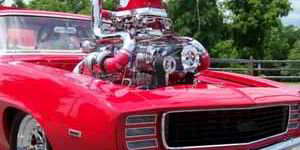“In shipping you have to have the right people. When senior people repeatedly make mistakes, you have to replace them. I didn’t do that at OSG. I am not going to name names.”
Is Morten Arntzen pointing a finger at who was responsible for OSG running aground? But it seems it wasn’t the man at the helm!
“We never thought we were going to fail. We believed we had assets we could have sold and believed we were going to be able to get the refinancing done. We thought that right up until the accounting issue surfaced and the company could not in a timely manner produce its financial statements. That was the straw that broke the camel’s back.”
Arntzen now knows better.
(Arntzen breaks silence on errors made at OSG)
“I’m hoping it will give other companies a heads-up to not set sail in a storm. I know money is involved but life is too.”
The mother of Mariette Wright, one of 33 seafarers lost on the 40 year old US flag ro-ro El Faro, appears more safety minded than some industry professionals.
(Focus shifts to search for answers to catastrophic loss of the El Faro)
“We’re not talking about VLCCs or most other tankers, capesizes or larger containerships; the majority of our rustbuckets are bulkers or general cargoships, probably less than 20,000 dwt. Some are trading regionally and unlikely to call on ports with strong port state control.”
Substandard ships are still around and it’s time for a fresh assault on the problem according to Alan Ginsberg, the former finance chief of Eagle Bulk Shipping.
(Let’s work together to banish ‘rust-buckets’)
There is a big downside to clumsy moves to go green and not just for VW according to Gemini Tankers chartering manager, Robin Heath.
(Chartering guru doubts eco-ships in strong market)
“I keep hearing talk about the coming fire sales for offshore. Will people go bankrupt? Yes, definitely. Shipyards will. Will owners go bankrupt? I am not so sure because if you look at Norway, I don’t think the banks are prepared to take that kind of loss yet.”
Banks are not ready to take a hit from forced sales of anchor handlers and platform supply vessels according to Tor Allen Widing of Fearnley Offshore Supply.
(Prospect of huge losses for lenders likely to deter rush of forced sales)
“We are aggressively reaching out to banks, private equity and other sources of funding and, so far, the reception we have been given has been very positive.”
Singapore tanker operator Navoil has its eyes on the Oslo over the counter market with Asheesh Anand upbeat about prospects.
(Navoil eyes Oslo listing to fund fleet expansion)
“Projects that stand out as yielding the highest return are containerships and the ones that are the lowest are five year old tankers. I don’t expect everyone to go sell all their tanker investments but it does raise the question ‘do I shift some of my portfolio to bulkers and containers?’ The risk-return profile has changed dramatically.”
A contrarian view of tanker market prospects from Arlie Sterling of shipping consultant, Marsoft.
(Marsoft pundit warns tankers may not be good investment)
“We have managed to deliver some pretty clean years to the reinsurers, and we are in a very soft market where there’s a lot of capacity. Hopefully we’re looking at a fairly positive renewal.”
Andrew Bardot of the International Group of P&I clubs says what the market wants to hear.
“If the clubs are not going to use their treasure chests to help the owners, what else are they going to do with it?”
Malcolm Godfrey of Arthur J Gallagher poses a question he knows the answer to as he makes another call for the P&I clubs to set zero or small general increases at the February renewal.
(Gallagher steps up assault on P&I increases as club reserves double)




